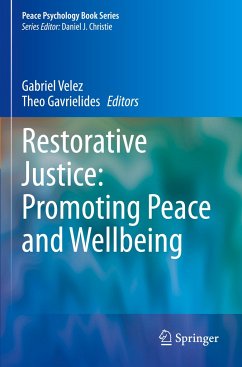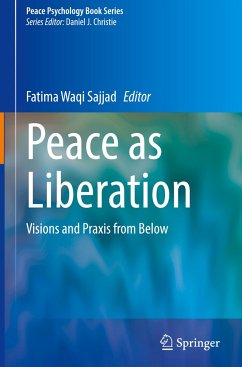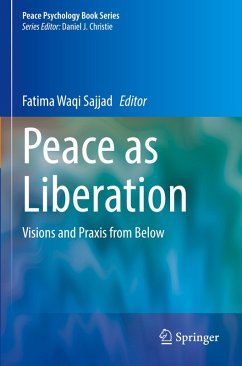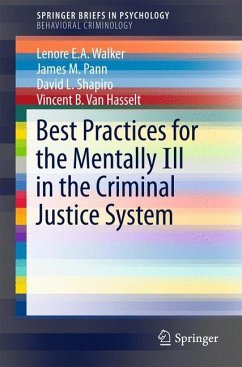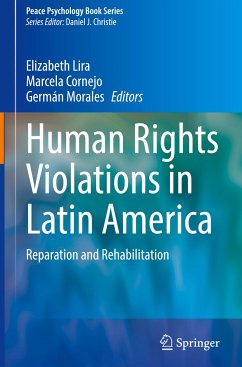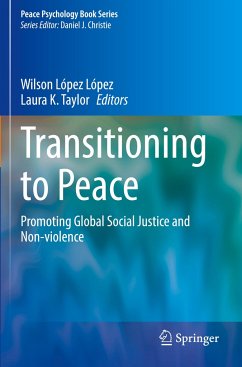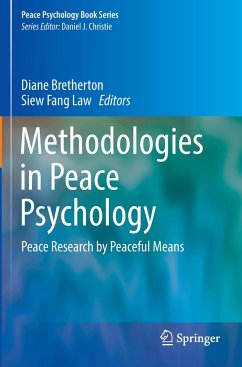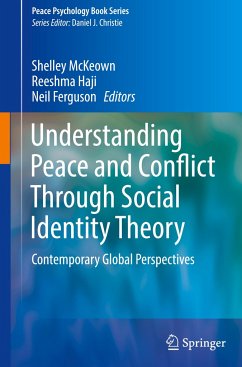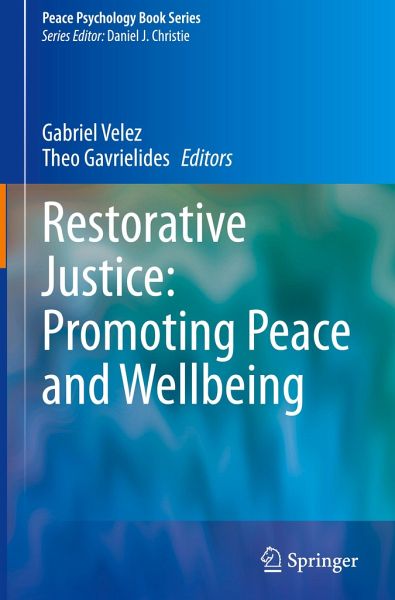
Restorative Justice: Promoting Peace and Wellbeing

PAYBACK Punkte
42 °P sammeln!
This timely collection of chapters written by international experts bridges the gap between peace psychology and restorative justice. The Editors combined their respective fields of expertise to start a much-needed debate on the potential but also risks that are associated when implementing restorative justice in the peace psychology field. The volume highlights how psychological theory and research can inform and evaluate the potential of restorative practices in formal and informal educational settings as well as the criminal justice space. The chapters cover both negative and positive peace...
This timely collection of chapters written by international experts bridges the gap between peace psychology and restorative justice. The Editors combined their respective fields of expertise to start a much-needed debate on the potential but also risks that are associated when implementing restorative justice in the peace psychology field. The volume highlights how psychological theory and research can inform and evaluate the potential of restorative practices in formal and informal educational settings as well as the criminal justice space. The chapters cover both negative and positive peace across levels while introducing the reader to various case studies from across the world. All in all, the book explores how restorative justice can promote positive peace through its connection fostering dialogue, empathy, forgiveness, and other key psychological elements of peace.





